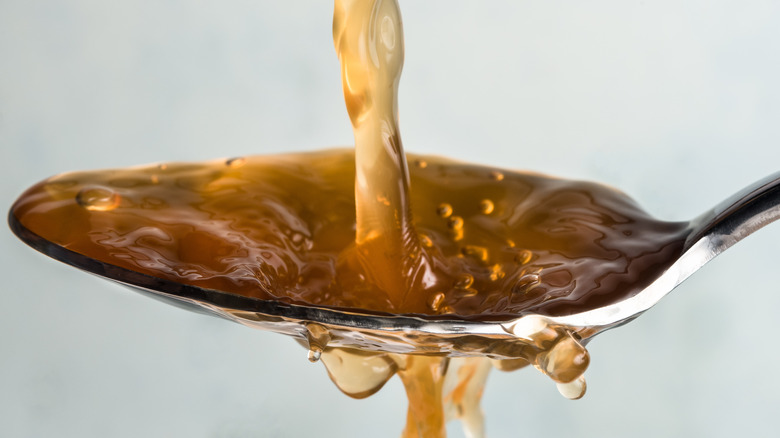Can Apple Cider Vinegar Actually Help Prevent Cancer?
If you or someone you know has been diagnosed with cancer, you may have noticed people are quick to share suggestions on how to treat cancerous growth. People are often quick to offer natural home remedies, claiming they can prevent future tumor production. However, most of them are not "miracle cures," and it's important to recognize which of these treatments are simply myths.
One popular belief is that apple cider vinegar holds potent value in preventing cancer (via Healthline). Apple cider vinegar (ACV) is apple juice fermented with yeast (via WebMD). It carries various potential health benefits. Apple cider vinegar may be used to treat bacterial infections and could be helpful in aiding digestion. This drink is powerful against heart diseases as well. If you suffer from dandruff, ACV also contains various nutrients that can ease the flaky scalp. According to Healthline, some people add apple cider vinegar to their diet in order to lower their blood sugar levels and promote weight loss.
Is apple cider vinegar useful for preventing cancer?
Despite the variety of health benefits of apple cider vinegar (ACV), there's limited research on whether adding this superfood can, with certainty, reduce the risk of getting cancer. However, a few studies have discovered apple cider vinegar may possess some effect against cancer. A 2021 study published in the Journal of Functional Foods revealed that fermented apple juice or ACV carries ample polyphenols, which are highly anticancerous and may stop metastasis or tumor growth, particularly in the case of colon cancer.
Some people follow the beliefs of Nobel laureate, Otto Warburg, who thought that drinking apple cider vinegar could adjust the body's pH balance and kill cancerous growth (via Healthline). Warburg reported that since cancer cells release lactic acid and increase acidity in the body, ACV can help reduce the acidity in the body. This claim was explored decades after in a 2014 study published in the renowned Journal of Gastroenterology and Hepatology, where scientists treated cancer cells with acetic acid, which is found in ACV, and discovered that one minute of exposure to a 0.5% concentration of acetic acid could kill off 80% of the cancer cells exposed. Thus, drinking ACV daily may hold anticancerous benefits to some extent and could be a potential medicine against cancerous growth.


